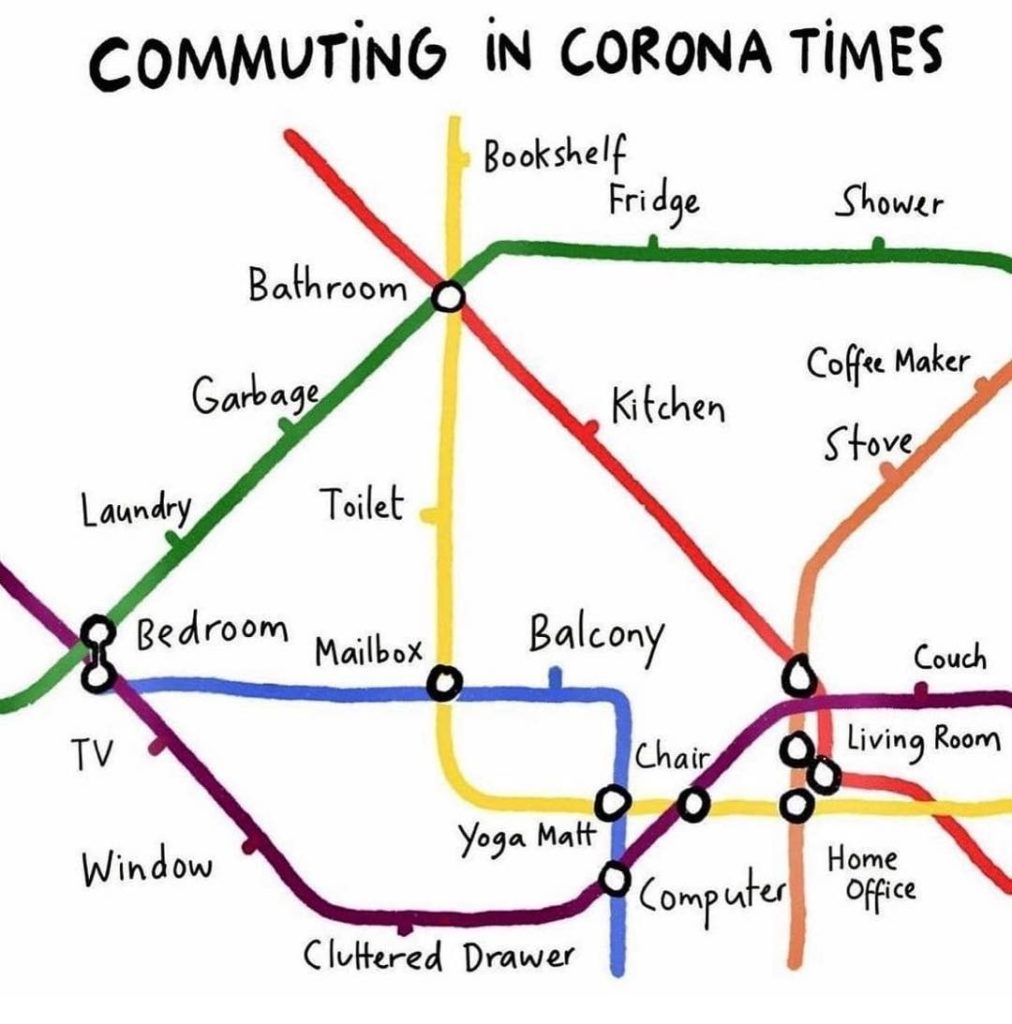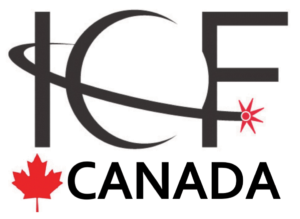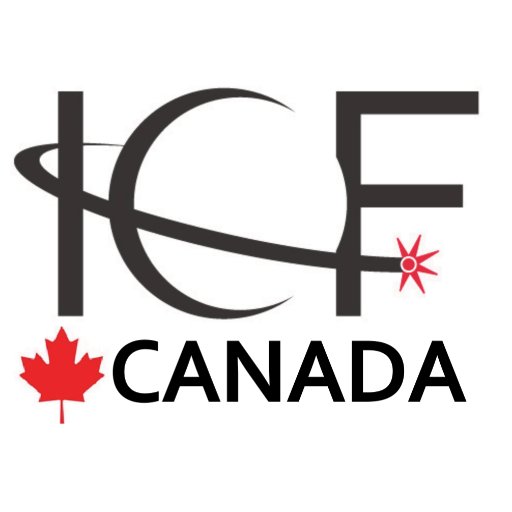
ICF Blogs: “No Place BUT Home – Part 1: Socially Distanced but Spiritually Connected” and Part 2: “The Blitz”
by Louis Zacharilla, ICF Co-Founder
Image By Kera Till (keratill.com)
No Place BUT Home – “Part 1: Socially Distanced but Spiritually Connected”
So much for the death of distance. Now it’s “keep your distance or get sick and maybe die.” Social distancing, a new word and the emotional equivalent of a prison sentence for the innocent, descended on us like a sudden iron gate. Here in New York City, where I live, work and, so far, breathe we are the global epicenter for this Michael Jordan of viral diseases. So, I find myself isolated and weirdly unable to do my most simple, pleasurable social transactions and spiritual exercises. It is not losing access to the big stuff that incarcerates me here. Yeah, the restaurants are closed and the theaters are dark, but the fact that I cannot comfortably take an elevator to the lobby of my own building to talk baseball and gather frivolous gossip with my doormen Willie and Javier is killing me.
Nor can I walk down Third Avenue to get tea (and flirt) with the bright, overqualified workers at David’s Tea. This is a total shame because most are big followers of ICF and listen to our podcasts and inquire daily about our work. And as lunchtime rolls around, I cannot stroll toward Central Park and Hunter College in the early afternoon to talk about Middle East affairs and small business with my entrepreneurial friend from Iraq, whose Halal food carts dish out the best chicken and lamb gyros on the Upper East Side of Manhattan. He has been expanding his empire on wheels the past two years and now owns additional carts, including one that produces amazing smoothies and healthy juices. In between sliding chopped pieces of scented chicken and herbs onto pita bread, he celebrates the reality of the American Dream. That dream is laced with the dread of a nightmare now.
Normally when things feel darker, I go further south on Lexington Avenue to my parish Church. It is now the season of Lent for Christians, and I had been awakening early to attend the daily first Mass at St. Vincent’s where Father Walter Wagner (you’ll remember him from a series of podcasts we did with him) and the priests and nuns from the Priory begin their day too. No more. No congregating the congregation. I will miss most the shards of multi-colored light that pour through the massive stained glass windows behind the main altar at 8:13 AM each day and nearly blind me. And yeah, I even miss getting on the Subway and being part of the odd life and harried circus of New York’s Mass Transit system.
But we now need to stay apart to save one another. This is an infodemic as well, and yet I feel that I am working in the blind. The media saturates us with guidelines and marinates us with instructions. (Wash your hands!) Governors, like mine here in New York State, appeal sagely to our sense of trust and community – pleas rarely heard or heeded, but at the heart of civic life. These are part of the treatment, if not the cure. (Have I not been saying this for years?). Schools, businesses and one out of every three Americans, and an even greater number of Koreans, Italians, Iranians, Taiwanese and others have found that despite a total icing in place of the global economy, the “broadband economy,” as we called it in our first book, is like a holding pattern for a jet. It at least allows things to move until we can return to a soft landing and the next take-off.
There is no Dow Jones Index for social decline, it is said. But distance is the nasty medicine we are being forced to swallow for an indeterminate amount of time. So we use whatever tools we have to remain connected and to function. There will surely be unintended consequences of all sorts. New York Governor Cuomo concluded his press briefing today suggesting that we stay “socially distanced but spiritually connected.” It is a phrase worthy of any advertising copywriter. But how? Like a former New York governor, Franklin D. Roosevelt, this one also says that he will give us the hard facts only and tell us when he is sharing an opinion. This one falls directly into the latter.
How? “I do not know, but that is the question to ask ourselves.” Indeed. Over the next few weeks we will explore this and other questions in a new series of videos, now being recorded with our Top7 Intelligent Communities and other experts in the movement. We will find out how the world’s Intelligent Communities are handling the crisis, what they are finding to be useful and what they think will happen next. This blog will also be more frequent, and I will tell you as best I can what my community life in New York is like during this “Netflix Plague.”
Shakespeare wrote a long, long time ago, “We are not all alone unhappy.” If Misery enjoys company – and this is a miserable time – it is only because we do not want to suffer alone. But watch as communities respond, proving once again that there really is no place like home. But once they reopen my favorite bakery, the Halal cart and the Church, I am outta here!
No Place BUT Home – Part 2: The Blitz
There is battle underway in New York. With the virus surging toward its peak I am starting to feel like I am living through something akin to what I know of “The Blitz” in the early 1940’s in England, during World War II. A terrifying reign of terror, coming relentlessly at me with no conscience, is what I am feeling. I watch as brave people hold the line and others try to contribute as best they can. People are emerging to whom we owe much. Doctors for sure. Also the delivery guys, most of them Mexican, on their padded bicycles; the cashiers at Citarella and Food Emporium markets. My doormen Javier, Willie, Larry and Tom. Yeah, I am under siege, and the only weapons are a healthcare system renowned for the quality of its research and advances in the most exciting areas of science. But we also have a community hospital system and its challenges, as the world is seeing, are profound. We are also armed now with extreme civic cooperation and access to the rest of the world online. These are useful, but they are inadequate for the real job ahead.
Most of the sirens in my neighborhood tonight carry gasping COVID-19 patients to overcrowded, understaffed ERs at New York Presbyterian and Lenox Hill hospitals. There are medical tents rising in Central Park, although I have not seen them. My brief walk along the avenue revealed only the pink blossoms of the trees celebrating the arrival of Spring. Both hospitals are within walking distance of my apartment (located next door to Trump Palace). We learned a few nights ago that the head of the NY Police Department’s Anti-Terror Department is in Lenox Hill with the disease. And this morning we learned that Harlem-based Detective Cedric Dixon (48 years old) passed away as had one of my favorite playwrights, Terrence McNally.
Why the officers and service workers and delivery guys still are not wearing masks is a big question. It’s stupid. The head of Korea’s equivalent of the CDC says it’s a no-brainer that we should be wearing them. I wore my first one yesterday. And I added a Yankees cap to the wardrobe, somehow hoping that by putting it on the season might be back soon. The ironies pile up as do the cases.
Sick bodies are piling into the hospitals. New York’s EMS received 7,000 calls last night. The frontline folks in the ERs are throwing everything they have to try and preserve our health and whatever sense of dignity that can be mustered. There is truly not much. Inside NY Presbyterian hospital, they are going through as many as 70,000 masks per day.
Bombs throw all kinds of shrapnel. A theatre director and friend calls me and he is panicked. He has been a recovering alcoholic for 32 years but cannot get to an AA meeting. The churches and basements usually reserved are closed. We talk for a long time. He calls me again today. He found a global meeting online. He “attends.” He will adjust. But it is a close call. I can tell.
Remember what I said about the social index and its inevitable decline?
New York Times reporter Corina Knoll nailed it when she wrote, “New York is a city suddenly forced to be everything it is not.” This is more than a tourism economy crisis. No one on their deathbed ever said they wished they had made more money, I am sure. This is a personality schism from within. Who are we if we are not the place with the high energy mojo that makes us New Yorkers?
In solidarity with the brave ones, the Empire State Building flashes red like a siren. You have seen it. Everyone has seen it. This is New York, after all.
Does this schism impact New York more than other places? It is no doubt the same in Madrid, Bergamo, Columbus, Ohio and Toronto. But New York, it is said to me often, has a special energy. Here we are a mixture of density, diversity and often a neurotic but theatrical and creative thrust of human poetry and collisions. This will be a tough place to live for a long time. A freaky “war zone” with 10 million couch potatoes – the exceptions being those in the ambulances, on the bicycles in the cold wind and the guys in their uniforms ensuring that my building runs smoothly.
What will your community become when it goes indoors and the blitz starts? What will you be doing?
Today we begin our series of dialogues with Intelligent Communities and others from around the globe and ask them to share with you their story of their battle with the “Netflix Plague” or “The New Blitz.” Call it what you want. We are calling our series: “No Place BUT Home.”
![]()
![]()
Want to have a voice in iCommunity.ca, the official newsletter of ICF Canada? Please send your blogs, announcements and other interesting content to John G. Jung at [email protected]

ICF Canada 1310-20 Bay Street Toronto, Ontario M5J 2N8 www.icf-canada.com
Contact: John G. Jung at [email protected] 1-647-801-4238 cell
Want to change how you receive these emails?
You can update your preferences or unsubscribe from this list
